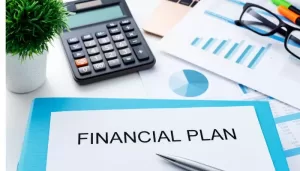16 Money & Credit Saving Tips For The Tough Times | #4 Is A Game-Changer

Saving everything you can in good times can come in handy when things become challenging. And, as the recent pandemic has confirmed, anyone who had the belief mentioned above was unquestionably on the right track. So, it’s always good to cut expenses in good or critical times. Why? Because every little penny counts!
However, if you were using secured credit cards in Canada, surely your line of credit wasn’t hit that much. Sadly, people worldwide lost jobs, income, and whatnot which took a toll on their financial and credit life.
Moreover, not only their professional health was compromised, but they also suffered mentally and emotionally. Are you among them too? So, to help you cope with whatever hurdles come your way, here are some money and credit saving tips:
Money & Credit Saving Tips
According to CTVNews data, nearly 225 million people lost their jobs to the pandemic. How many of them would have struggled to make ends meet with their piling credit card and necessary bills? Quite a lot. Argh, only if they had started early to put money in their emergency funds. However, the best time to start is always now, as you never know what’s awaiting you in the future.
1. Plan Your Finances

Source: Freepik
Note and analyze where you are spending the most; this way, you can better understand what’s taking all your money. It can also help you group the things depending on their importance so you know beforehand in which area you can save some bills.
- Make a list of all your finances ( make sure you actually save it in a file and not just do the calculations in your mind)
- Mark the things you can choose to avoid as ‘skip’ (the things without which your life can still move in a flow)
- Give all the necessary things a ‘continue’ title (think through whether or not they deserve this mark)
Planning ahead gives you the confidence to tackle every hardship. So, bring out your laptop or notebook and start planning your finances now!
1. Stay On Budget
You can budget like a pro now that you’ve effectively planned your finances and know what you’re earning and where it’s going. So, the second tip on our list is budgeting. And, not just your usual categorizing but something that can actually push you forward to save money in the process.
- You can create a budget plan for yourself using an online budgeting tool
- Or, get help from the money saving expert guide on how you can make an adequate budget that will actually work
Surely, you might fail in the first few rounds but trust us; you’ll get the hang of expert budgeting in no time.
2. Avoid Credit Card Debt
You can only save more if your mind is free of debts and loan payments. So, if you want to start saving the amount that can be helpful in your tough times, first try to pay your credit card debt. Or, if you think you can still manage well even with your monthly installments, negotiate with your credit card company to set healthy and beneficial terms for both parties (them and you).
3. Open Emergency/Savings Fund
Ah, the cat is finally out of the bag. We know you were waiting for this one. :p
Okay, so this is pretty basic yet works like magic. First, you need to open a savings or emergency fund account to use it for your bad times. After that, it doesn’t matter, even if you just add $20 or $40 to it. You can always add more when things are working smoothly.
Just make sure to put something away every month, and you’ll be surprised how much you have saved at the year-end.
4. Find Low-Interest Card
What happens during this challenging time in your life? Your chances of skipping a mortgage, loan, or credit card payment increase. What’s the one thing you’d like to stay away from the most? It’s the exact same thing!
- Barry Choi at MoneyWise states that considering a low-interest credit card can help your pay the debt faster
- Moreover, even if you miss a payment, you can manage the fees easily with such credit cards
Your low-interest card might also allow you balance transfer which can be favorable in paying down your debt.
Tips To Save On Food/Groceries
Food and grocery bills can take out a lot of your total income and monthly budget. Of course, it makes sense you have to put eatables on your plate and palate. So, can you really not do anything to cut your meal cost? Yes, you can by following these helpful tips:
1. Jot Down Shopping List
You tend to spend more when you have no clear idea what you actually came for. Without a shopping list, you’ll feel like your pantry is empty and you need to buy everything.
With a shopping list in hand, you’ll know what you need to buy. So, you won’t be tempted by all the good stuff there. It can also save you from all that cravings trouble.
2. Buy From Sales
Hand down, the best tip to save money on groceries is by cutting down your weekly or daily grocery cost. And, that can be achieved only if you know how to buy wisely.
- Try visiting multiple grocery stores every few months to know which ones offer food and grocery sales the most
- You can also visit stores that sell near expired items at low prices
However, make sure that you’re purchasing healthy products and nothing that can deteriorate your health.
Bonus: Click to see a list of 37 cheap food items by Frozen Pennies to make a shopping list when you want to buy cheap but eat expensively.
3. Consider Grocery Apps
Find your local grocery apps and regularly check for food coupons and grocery sales. You might also get an app discount on certain supermarkets by scanning the code from your mobile.
The best part is they might also provide you cashback rewards which you can reuse to purchase more items on your grocery shopping list. You can also ask your credit card company if they offer such app services so you can buy things and make reward points.
4. Find High-Quality Yet Cheap Pricing Brands

Source: Freepik
The pricey isn’t always good! Surely, the high-end popular food brands grab the attention of all the people due to their good marketing or nutrient value. However, a local food brand doesn’t need to be cheap just because a lush company does not produce it.
- Look for generic or local supermarket food brands but don’t forget to read their nutrient value
- Ask the cashier what’s his favorite local brand as they know the market the best
If the branded and local food have the same health benefits and nutritions but come at different price rates, opt for the cheaper one.
5. Compare Labels
Every big container doesn’t ensure a good purchase! There, we said it. If you see a large tub of red chili paste alongside a medium one with a $15 price difference, the large tub doesn’t need to have more content! Yes, often, it’s just a selling strategy of the brands to make the customers buy the other one. Here’s what you can do:
- Compare the weighing label of both items and see what difference there is in the packaging
- Compare the pricing for both sizes and calculate which tub will be a good purchase
It’s such a misconception that the upgraded packaging is usually cheaper because mostly it’s just a brand’s selling technique. They make the customers think they are buying it cheaply when they’re only getting the same thing at a higher price.
6. Start A Herb Garden
We know you were expecting this because it’s such a healthy and effective way of saving money on food and grocery. Moreover, you can get everything organic and 100% fresh right from your home premises, too, without spending much. But, of course, you have to spend something to plant the herbs and seeds and then work to make them grow. But, trust us, using the herb garden vegetables, you can definitely save some pretty big chunks.
Tip: If you can manage, start raising chickens to get some free protein sources in the form of eggs and white meat. Of course, the choice is totally yours if you can handle the animals or if you have the time to care for them.
Tips To Save Money With Credit Card
Your credit card usage decides how much you can save. If you don’t know how well to use it, it can and will make you fall deep into debt. So, here’s how you can avoid that and save the best using your credit card:
1. Clear Bills In Full
The silent plea your credit account makes every month while looking at you spending all of your might. The best practice is to make a habit of paying your credit card bill in full monthly. Then, if you never miss or make any late payment, the chances of credit debt will automatically reduce!
2. Set Reminders Or Automate Payments
A key step towards paying your card bill in full is reminders and automated service. But, unfortunately, your mind is occupied with so many things that you might miss the due date of your bill.
- Set a reminder on your phone and credit app to keep your bill in check
- Activate the automated payment clearance option, so you don’t have to worry about ever missing a bill
Your reminder and automated payments can stop your interest rate from going higher, which usually happens when you skip one or two payments.
3. Skip Cash Advances

Source: Freepik
In tough times with no savings or emergency funds, the first thing we ought to do is apply for a credit advance. Surely, it sounds like the need of the hour, but it can also put you on the list of credit noobs who became victims of the financial system. According to Kasasa’s research, cash advances come with a package of high interest, additional fees, and taxes.
- You have to pay the interest right from the date you were given the cash advance
- Even if you managed to clear your balance in two or three months, you still need to pay the hefty interest fee
However, it might not directly impact your credit score, but it can put you in situations when you might surpass the ideal credit utilization ratio, thus reducing your credit score.
4. Utilize Maximum Rewards
Choose the right credit card so that you can get the maximum benefits of rewards, travel miles, and bonus points when needed. Then, pick your options and compare the monthly or annual fees to see whether or not it’s worth buying. Also, get help from the company or customer service to guide you in making the best rewards points.
Search in their app which grocery store or clothing brands they work with so that you can get a discount. It will help you maintain your monthly budget easily.
5. Avoid Bank Cards
Getting a credit card from your traditional bank can make you miss out on top money-saving credit cards like rewards, travel, grocery, cashback, etc. Moreover, using different credit cards for different purposes can help you save money on your daily needs. The typical bank card will restrict you from exploring a word that can otherwise be good for your credit and money saving.
Bottom Line
Life can be unpredicted sometimes and can hit you pretty bad, making you fall from the sky to earth. And preparing well for such times will ensure that you can run again to reach the top again. Guarantee that you don’t fall deep and remain on the floor for a long time.
So, give this helpful financial guide a read and take the initiative to save money and credit for your tough times. Good luck on your stress-free financial journey!
















